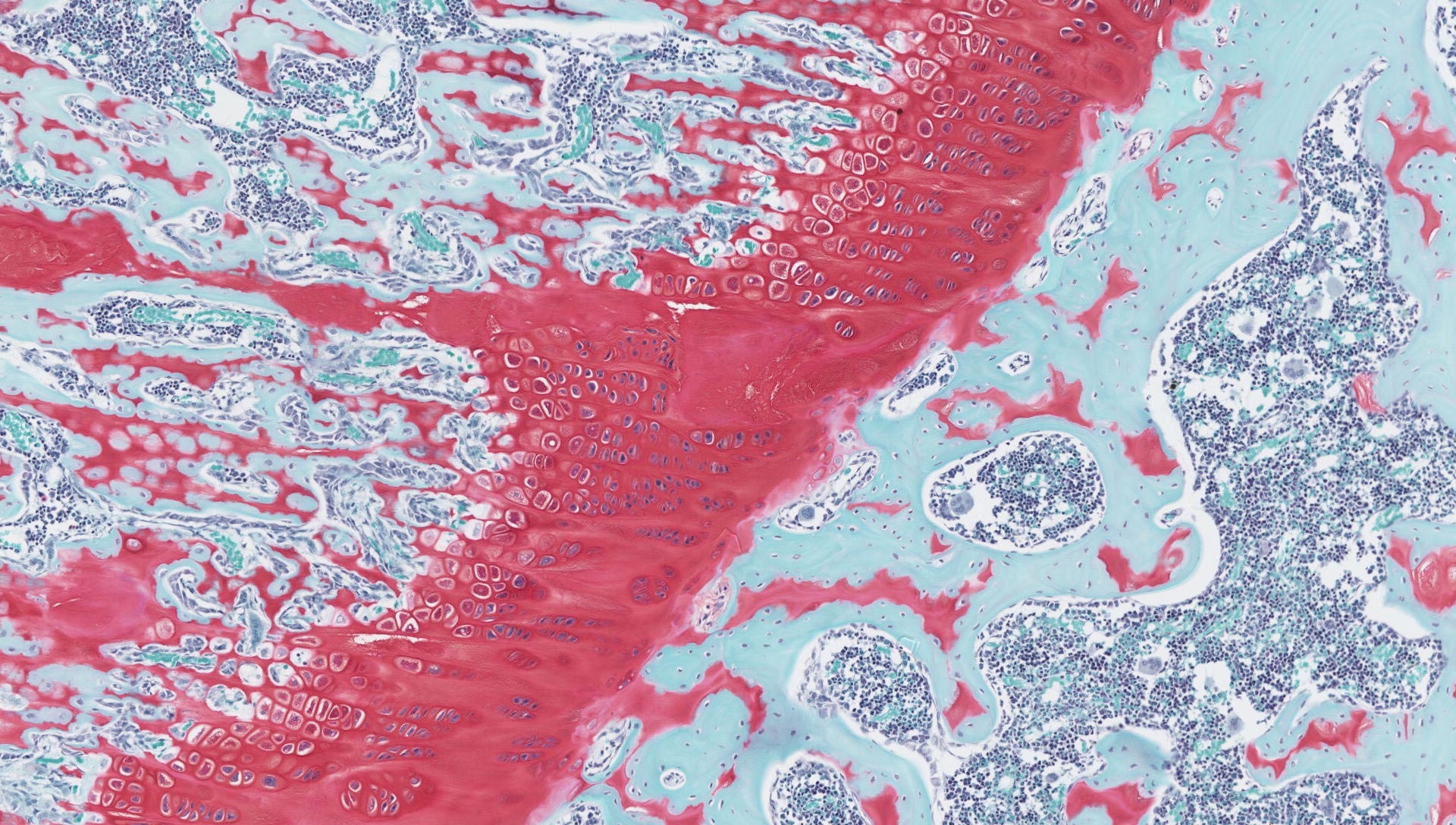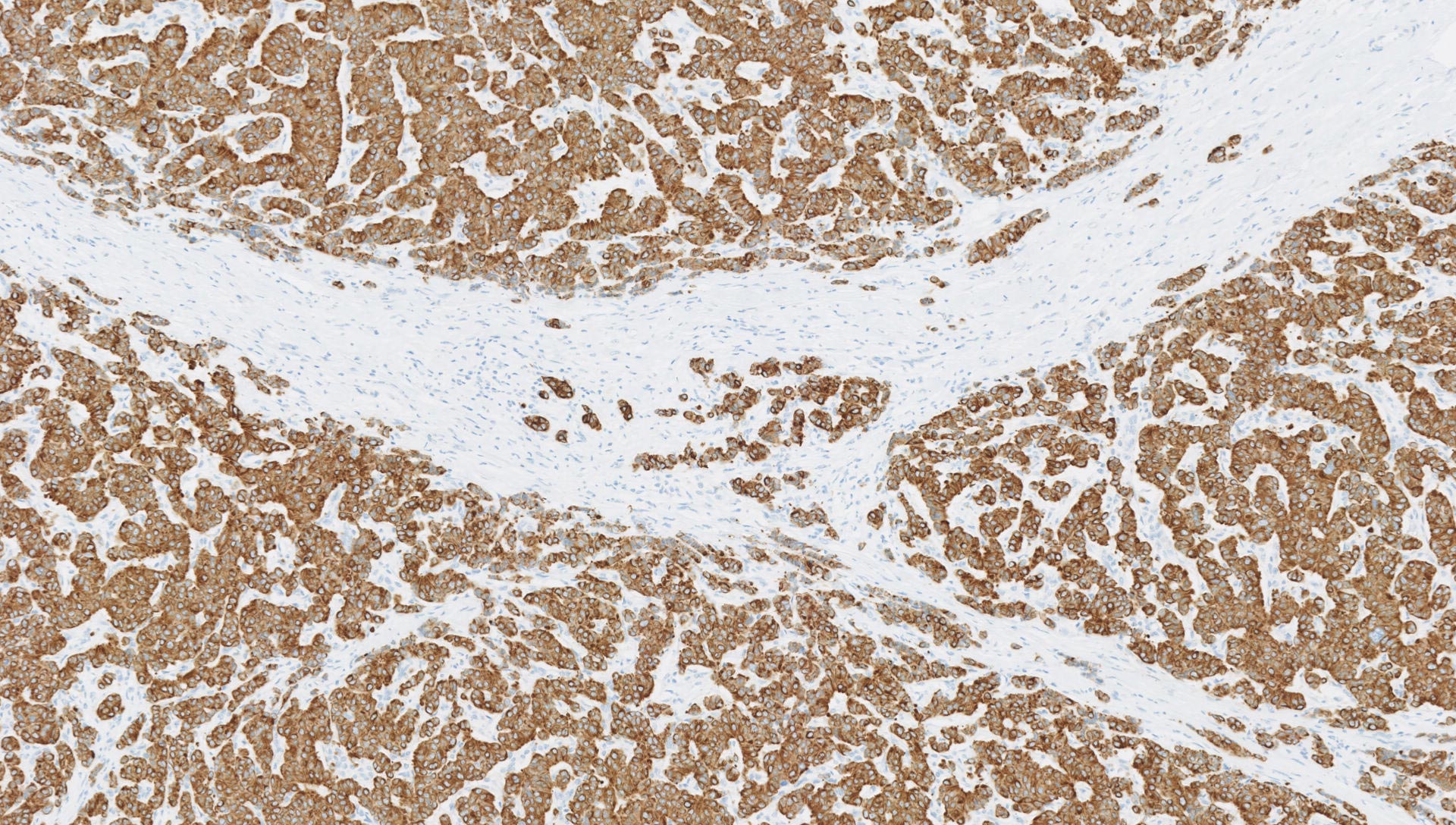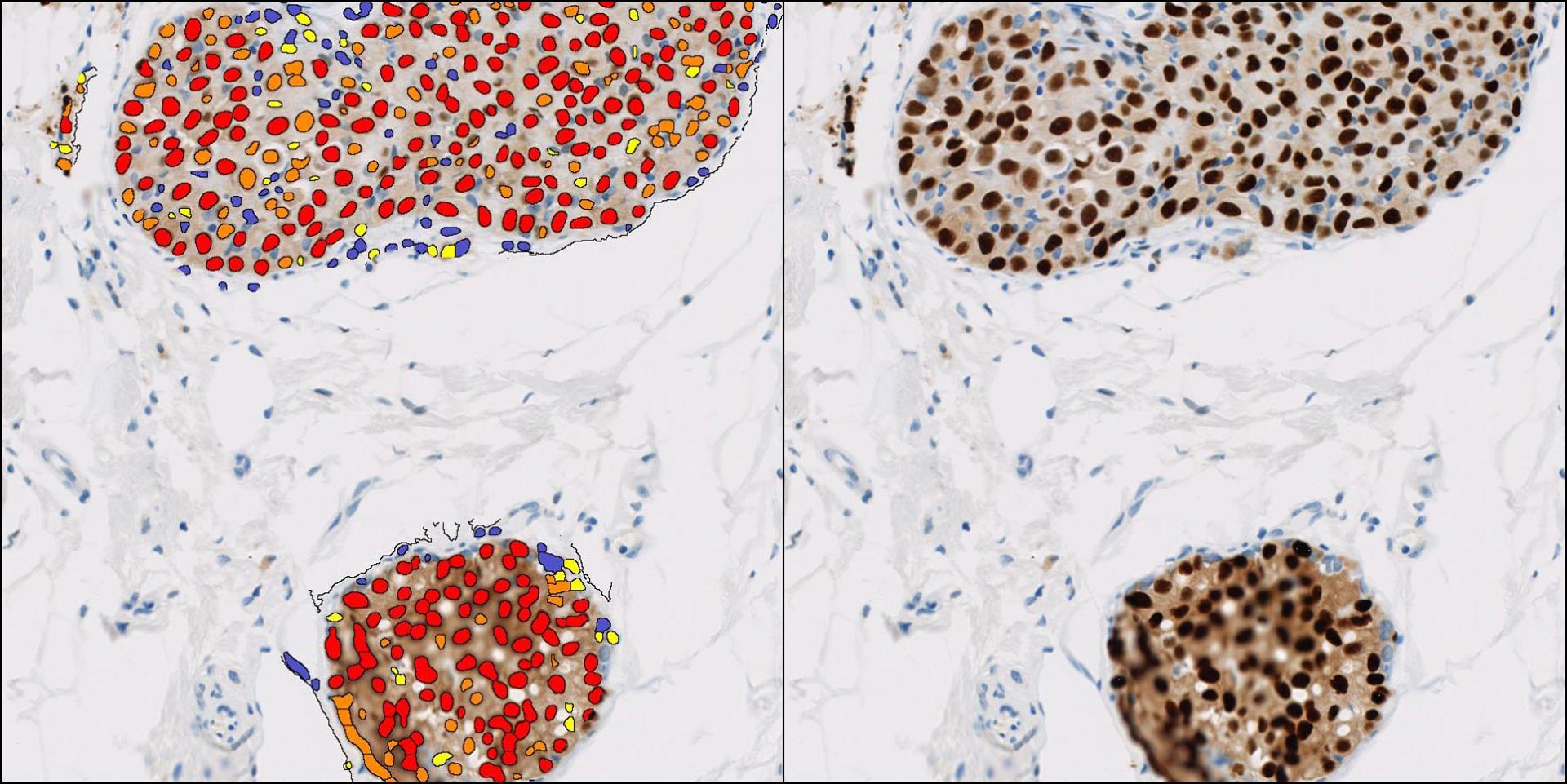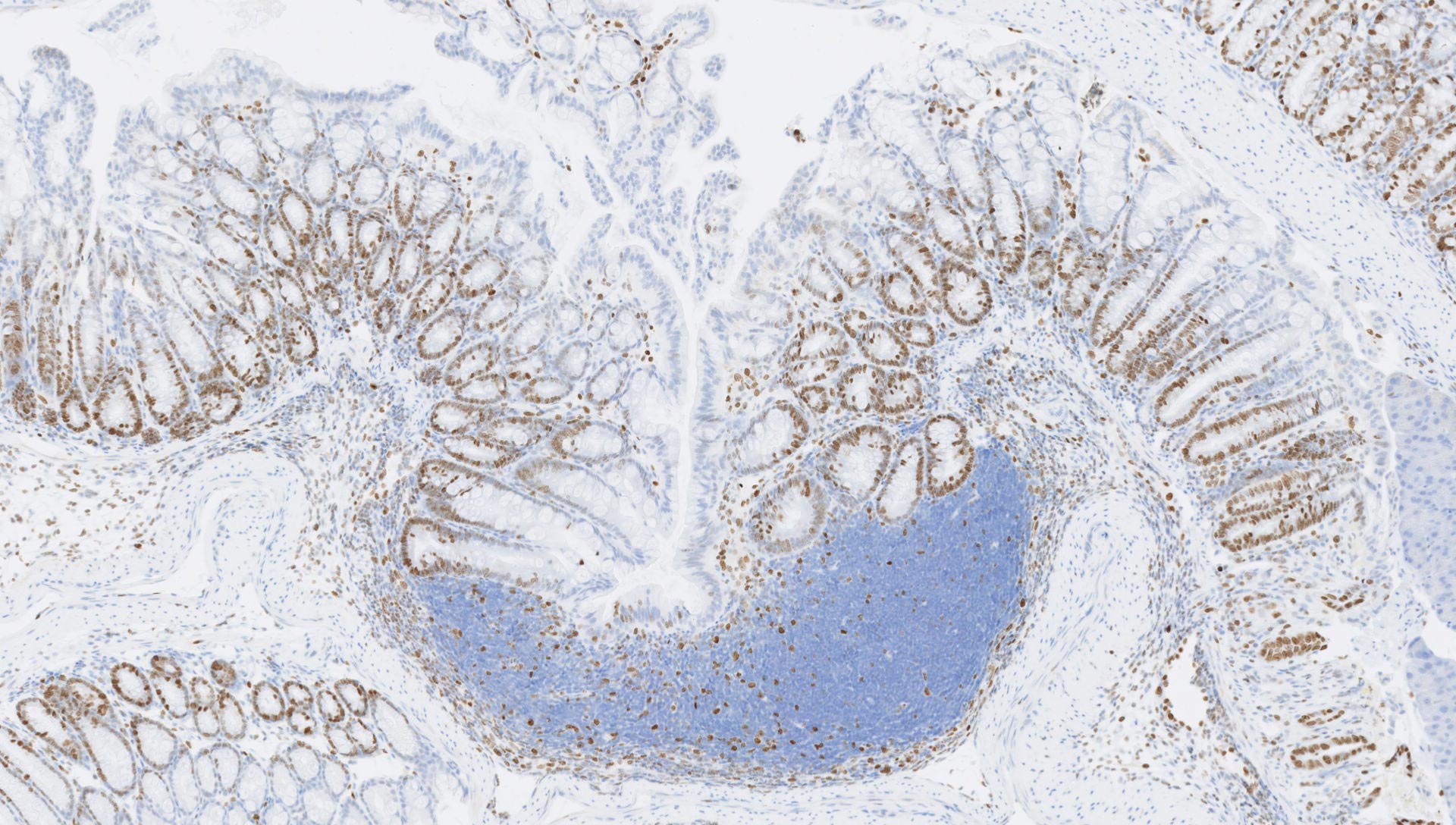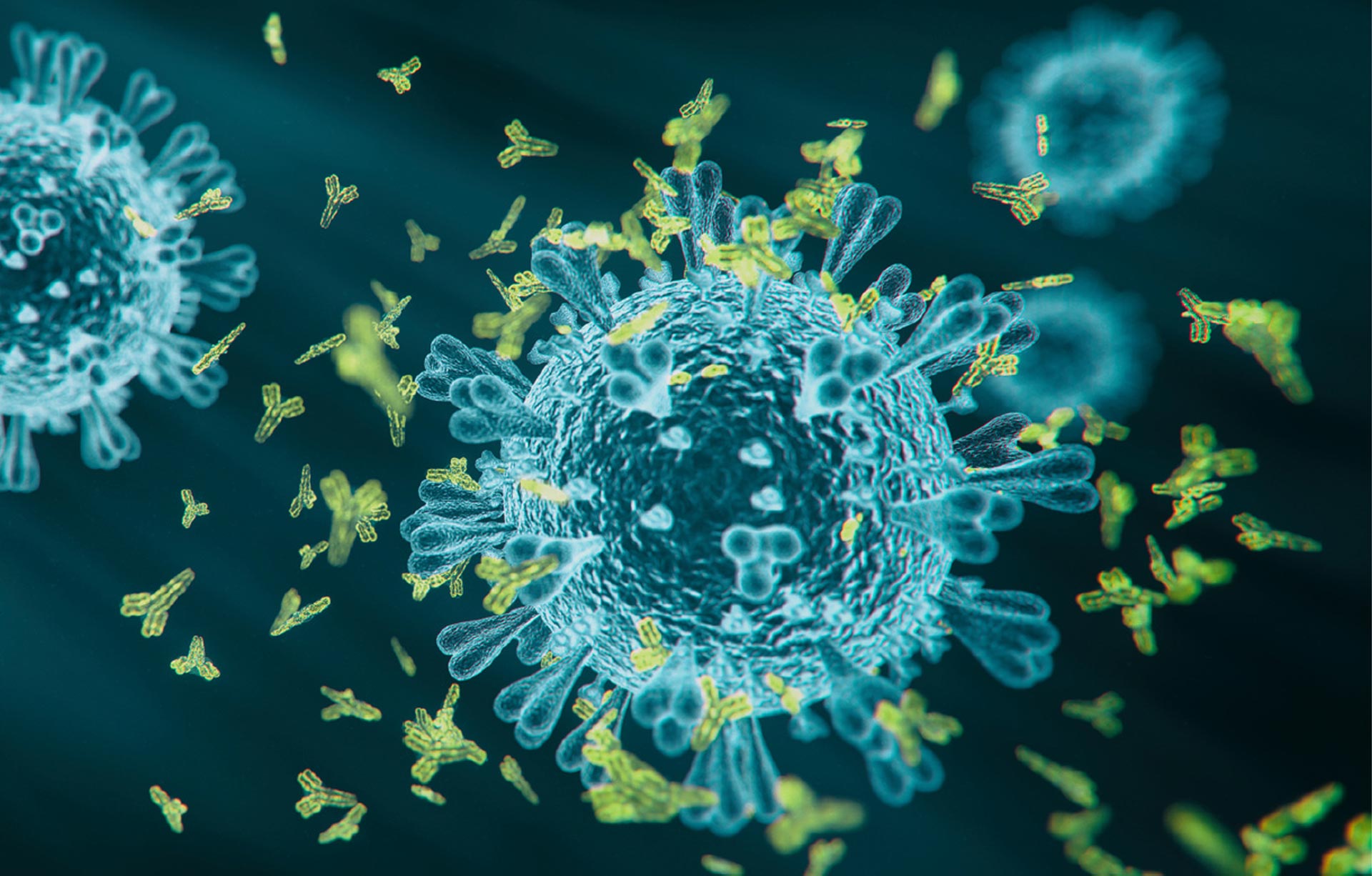Tissue Cross-Reactivity
With 100+ years of combined experience, we offer Good Laboratory Practice (GLP) Tissue Cross Reactivity (TCR) studies for your biotherapeutic on a range of tissues suitable for Investigational New Drug (IND) and Clinical Trials Application submissions.
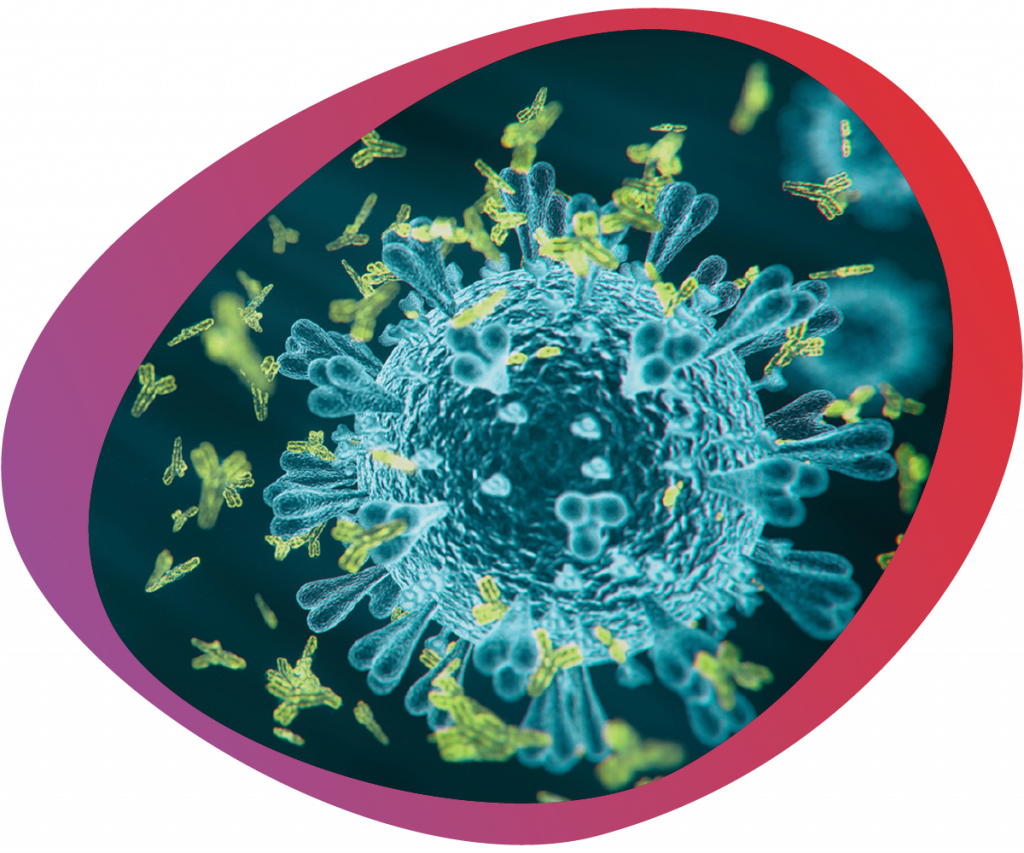
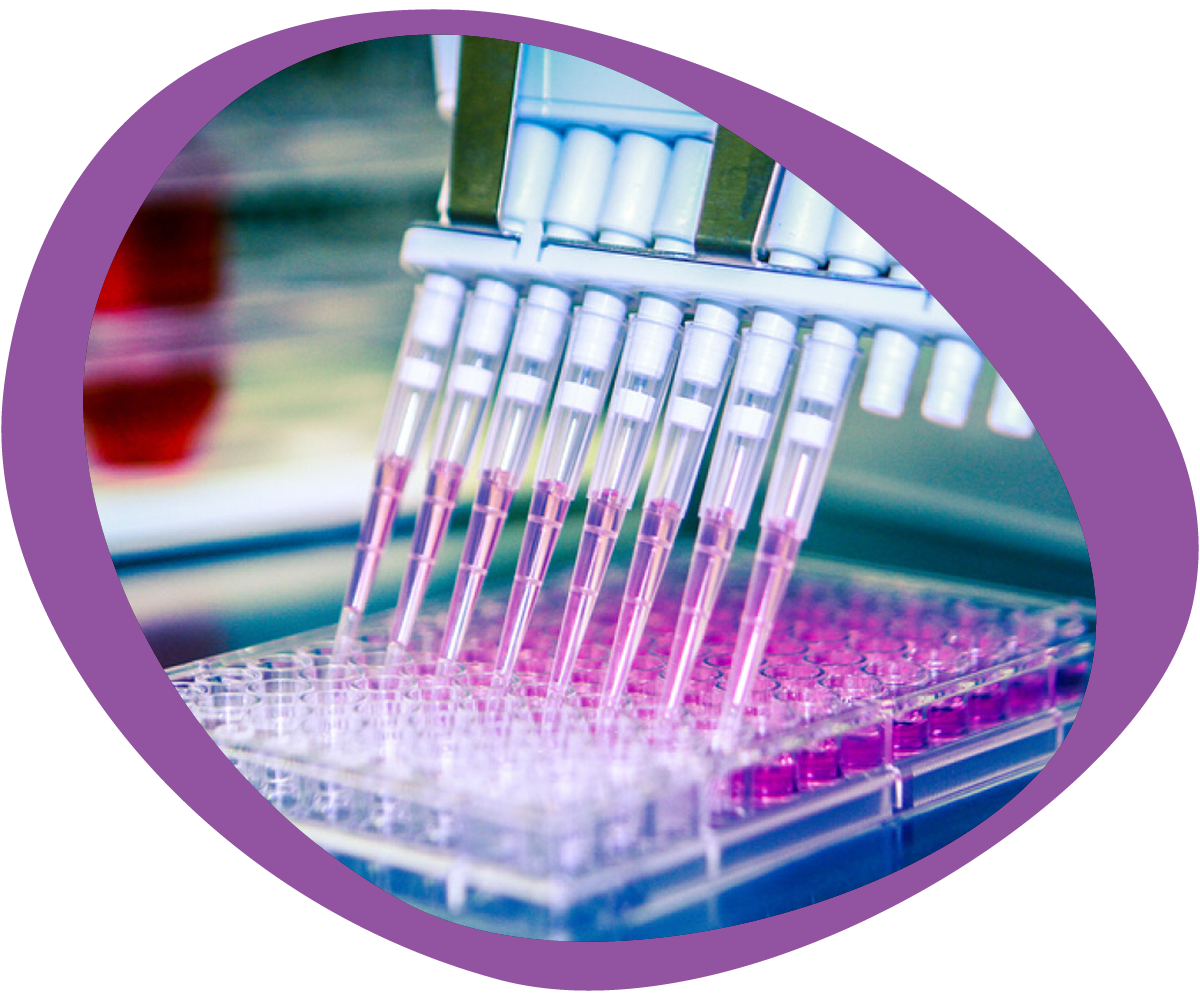
Our regulatory screening in human tissue is carried out in line with FDA, EU and Japanese MAFF regulations. Our team also offers non-regulatory screening to help identify lead candidate antibodies or clones using a smaller tissue panel or TMAs. We also offer preliminary screening on other species to identify relevant models for pre-clinical tox studies.
We have successfully optimized IHC assays in a wide range of novel antibody classes including human, murine, chimeric, fully human, antibody cocktails, Fab/VH fragments, bispecific superantigens, biomers, tetramers, bispecific superantigens, nanobodies, multispecific nanobodies, aptamers and variable regions attached to different carrier backbones.
Our Tissue cross reactivity studies are designed to help you identify off-target binding and unexpected on-target binding, which may lead to toxicity or improved efficacy in vivo:
1
First, we develop and optimise an IHC assay for your antibody using appropriate control tissues or cells.
Both manual and automated IHC staining platforms are available, allowing us to customise methods to suit your molecule. This step is the key to generating robust and meaningful data.
2
Next, we stain the required panel of frozen normal human tissues
3 donors per tissue type, to cover both U.S. Food and Drug Administration (FDA) and European Medicines Agency (EMA) regulatory guidelines, following your optimised assay. All tissues are available from our in-house biobank, have been collected ethically and pathology checked/validated.
3
Finally, we carry out the pathology read using expert pathologists
(MRCPath, FRCPath, American Board Certified) with years of experience in reading and interpreting antibody cross reactivity studies.
Our bespoke GLP TCR service delivers the required screening assay for regulatory submissions of novel therapeutic agents allowing you to proceed to clinical trial evaluation.
Want to know more about TCR studies or have a question?
We’ve put together some of the most frequently asked questions we get asked to give you more information about the service that we offer.
Tissue cross-reactivity (TCR) studies are screening assays used to identify the non-specific and specific binding of test biologics, such as antibodies or antibody-like proteins in different types of human or animal tissues. They are used in the development of monoclonal antibodies to ensure that experimental antibodies do not bind to epitopes other than the targeted sites.
A TCR study is generally conducted through immunohistochemistry (IHC), using a panel of tissues from human or animal species to evaluate toxicity. The staining profiles of animal and human tissues may vary in terms of intensity and distribution, so the data from a TCR study should be interpreted carefully and on a case-by-case basis in the context of preclinical studies. To gain insight into how to conduct a TCR study check out our guide here.
TCR studies are important because they are used to support human clinical trials. They form an essential component of the preclinical safety assessment package offered by laboratories. They help investigators identify potential toxicity towards targeted organs and expand potential indications that have not been previously identified.


